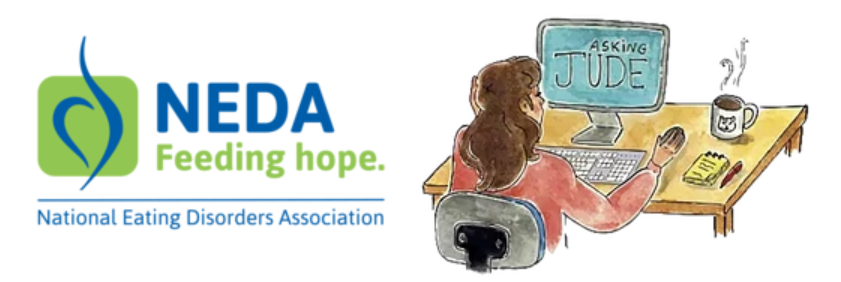Reaching for Recovery: My Summer Working for Remote Mental Health Resources

My name is Mikaela Savarese and I am a member of the class of 2022 here at Wheaton. This summer, I was able to pursue my first volunteer/internship experiences due to funding from the Wheaton Edge program. As a psychology major and a public health minor, I was thrilled to find remote opportunities that allowed me to practice clinical skills during the pandemic. I volunteered with the National Eating Disorders Association and Asking Jude, a community-based mental health organization.
At the National Eating Disorders Association, I served as a Remote Helpline Volunteer. In this position, I worked as one of many volunteers that provided professional resources and information about body image and eating disorders to struggling individuals and their loved ones. My key responsibility was conducting treatment searches. I fulfilled requests by using insurance and condition details to find treatment providers in specific disciplines for struggling individuals.
Due to this, I learned many valuable lessons about our healthcare system and access to care. Specifically, the amount of private practices that do not accept any insurance and the lack of Medicaid coverage. I was already passionate about creating more widely accessible community based mental health services, but this information brought my passion to a new level. I was also able to speak directly to struggling individuals over the phone, which allowed me to practice and improve my interpersonal skills and clinical approach.
In my second opportunity, I had the opportunity to experience a version of this model of care. Asking Jude is a free online mental health resource run by peer-counselors. The website accepts submissions from anyone with any concerns. These questions included subjects primarily related to mental health. Other topics included interpersonal conflict, domestic violence, sexual assault or abuse, and LGBTQ issues.
My supervisor assigned me six to eight submissions each week. For each, I created written responses that included resources, treatment options, and clinical suggestions for the submitter. I was exposed to a wide variety of problems from a wide variety of individuals (varying in age, gender, sexuality, religion, and culture). This allowed me to learn how to approach treatment from other perspectives and empathize with a wide variety of others.
These two opportunities allowed me to make a difference in the lives of others during an incredibly difficult time. Both companies had an increase in submissions due to the current political climate and the pandemic. I was able to take advantage of the world’s uniquely challenging environment to learn clinical skills and strategies that I will bring to my future career. I remember these to experiences fondly and hope to continue with this line of work in the future.
-
Categories:
- Career Services